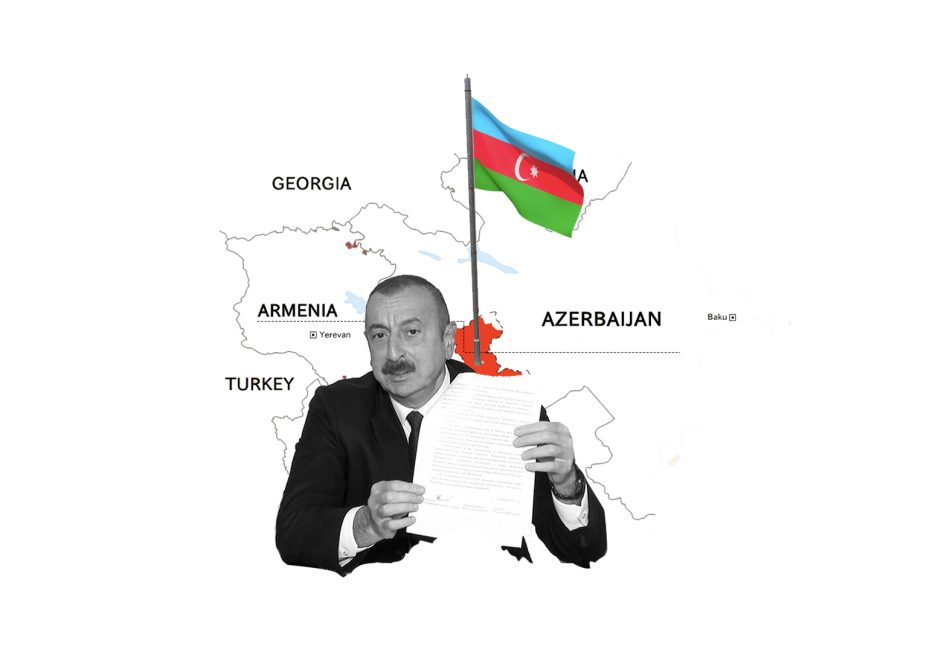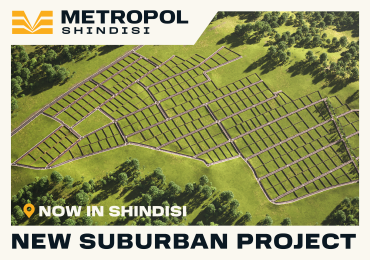Azerbaijan has made no secret of its plans to revitalise the economy of Nagorno-Karabakh ever since it regained control over the majority of the disputed region last year, following a 44-day war with Armenia. The reconstruction plan has been branded “The Great Return.” In February 2021, just three months after the ceasefire agreement was reached, a medium-sized hydropower plant was reopened in the village of Gulabird in the Lachin region.Azerbaijani President Ilham Aliyev, who was at the inauguration ceremony, said that the powerplant had “great significance” as “renewable energy has huge potential” for the region’s development.
In summer, other two medium-sized plants in the Terter region, Sugovushan-1 and Sugovushan-2, were put back to work. The plants used to be owned by Armenian company Artsakh HEK and operated under different names, Mataghis-1 and Mataghis-2. These plants are owned by the state and are operated by state-owned energy firm Azerenergy. Two other power plants, Khudaferin and Maiden, are being constructed on the Araz River, which also serves as the border between Azerbaijan and Iran. The construction of these plants began under Soviet rule but was interrupted after the first Karabakh War in 1993 when the region fell into Armenian hands. Nevertheless, Iran continued with the project on its side of the river. In 2016, Azerbaijan and Iran made a deal to continue the construction of the power plants, even though Baku at the time had no control over the territory. The power plants are now expected to start producing energy in 2024: output will be shared equally between Tehran and Baku.
Aside from hydropower plants, the Azerbaijani government is planning to build wind and solar energy facilities and transform Karabakh into what it has called a “green energy zone”. According to Azerbaijani Energy Minister Parviz Shahbazov, electricity in the Karabakh region will be produced entirely through green energy sources. The region’s energy production is so important that the loss of the territories has negatively affected the energy security of the Yerevan-controlled part of Karabakh, and even Armenia itself. Electricity transfers between Armenia and Karabakh have been interrupted after the Kelbajar region, which was crossed by energy transmitting lines, was ceded to Azerbaijan.
While the issue of energy seems to be solved easily, the Azerbaijani government is also now preparing to resettle its citizens in the territory it retook during the war. Baku has started building “smart villages”, which will accommodate hundreds of thousands of internally displaced people. The smart village is a concept focused on holistic rural development and implies small communities aimed at maximising economic development through the use of modern technologies of automation and renewable energy. The government has been also planning to expand the “agroparks” system: large-scale, government-subsidised agribusiness enterprises, to further accelerate the redevelopment of rural Karabakh. While agroparks have been operating in Azerbaijan in 2012, the idea of smart villages is new, seen by Baku as a way of resettling more than 600,000 displaced Azerbaijanis.
Azerbaijani media have been hyping the smart village concept extensively, citing the government’s statement on the use of automation that will significantly reduce human labour. According to the Ministry of Agriculture, smart villages would be implemented using green and alternative energy and a smart management system.
While Baku has invested more than a billion USD in the project, there are challenges facing its efficient implementation. First of all, even though the authorities have been working on the reconstruction and resettlement, though what will be done has largely remains vague. It does not take into account the need of IDSs, which according to surveys is largely agriculture. As it has been also reported, most of the returnees fearful of being unemployed and would like to do farming and have similar households as before, yet the government tries to push the concept of smart villages, the maintenance of which could cost a great deal. According to polls, most IDPs say they are less interested in smart villages than in resuming the lives they used to live in Karabakh, when they would supplement their work on state-run collective farms with their own produce from their kitchen gardens. This issue is intertwined with the unemployment rate. It is difficult to foresee how the government will be able to create employment opportunities in the region far from the capital, especially when IDPs will not be able to work in the agricultural sector.









